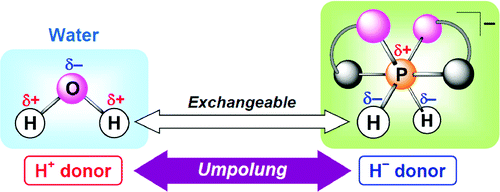The nucleus is the positively charged centre of an atom and contains most of its mass. It is composed of protons, which have a positive charge, and neutrons, which have no charge. Protons, neutrons, and the electrons surrounding them are long-lived particles present in all ordinary, naturally occurring atoms. 'Charge' missing from 18-#NAME? Accelerator bit Bit of physics Bonding candidate Ca or Cl-, e.g. Charge carrier Charged bit Charged item Charged particle Charged particle nothing to write home about Chloride, for one Cl- or Na+ Cloud chamber particle Cyclotron bit Cyclotron particle Discontinued Saturn Electrical particle Electrified atom.
Comparing structural effects on acidity
/atomic-structure-680789951-5919e8e83df78cf5fa739b46.jpg)
Generally, negative charges are stabilized by allowing the charge to delocalize over a bigger space or over more atoms. Typically, a molecule that holds the negative charge over several atoms will be more stable than a molecule that localizes the full charge on a single atom. The main features that determine the stability of a negative charge are the following:

- The electronegativity of the atom on which the negative charge is located
- The size of the atom on which the negative charge is located
- Stabilization of the negative charge through resonance
- Stabilization of the negative charge by adjacent electronegative atoms
I'll look at each of these factors individually.
Electronegativity of negatively charged atom

Simply put, negative charges prefer to rest on more electronegative elements (see here for more on electronegativity) than on more electropositive elements (like carbon). That's why water is more acidic than ammonia (NH3), because oxygen is more electronegative than nitrogen. Similarly, both water and ammonia are more acidic than methane (CH4) since carbon is more electropositive than nitrogen or oxygen.
Size of negatively-charged atom
Blender ubuntu. 1 day ago Install Blender using Ubuntu GUI software Manager If you are a beginner and familiar with the command line, the easiest way to get Blender is Ubuntu Software. Click on the Ubuntu Software icon, Search, type- blender, and select the software when appearing.
The size of the atom on which the negative charge rests also effects the stability. As a general rule, negative charges prefer to rest on larger atoms, as the charge can spread over a much larger region of space (making it more stable) than when the charge is localized in a much smaller space on a smaller atom. Generally, this preference for placing the charge on a larger atom trumps electronegativity considerations. For example, HI is more acidic than HF, even though based on the last argument about electronegativity you might suspect that F- would be more stable than I- because fluorine is more electronegative than iodine (and thus HF would be a stronger acid than HI). This turns out not to be the case. Iodine is so much bigger than fluorine that the charge is more stable on this larger atom. Pashua. Thus, the trends for acidity of the hydrohalic acids are as follows: HI is strongest, followed by HBr, HCl, and finally HF.
 Resonance stabilization
Resonance stabilizationOne of the most important effects on the acidity of a molecule is whether the conjugate base anion can be stabilized by resonance. Phenol, for example (shown below), is about 1,000,000 times stronger an acid than cyclohexanol because the conjugate base of phenol is much more stable than the conjugate base of cyclohexanol. This added stability of the phenol conjugate base arises because this anion can delocalize the negative charge throughout the ring through resonance, effectively stabilizing it. The conjugate base of cyclohexanol has no resonance structures to stabilize the charge and so is less stable.
| Electons on phenol are stabilized by their delocalization throughout the ring (shown below); cyclohexane has no electron delocalization, and thus is a much weaker acid. |

Neighboring electronegative groups
The presence of electronegative groups near a hydrogen also makes it more acidic. You can see why this is so by using the same analysis as before. That is, somehow the presence of these electronegative atoms must stabilize the conjugate base anion. For example, substituting the electronegative atom chlorine for hydrogen in acetic acid makes the molecule about 100 times more acidic (recall that the pKa scale is defined logarithmically). This increase in acidity is due to the electronegative chlorine atom pulling some of the electron density away from the oxygens, making the oxygens not having to bear all of the negative charge by themselves.
Clue: Electrically charged atom
Electrically charged atom is a crossword puzzle clue that we have spotted 9 times. There are related clues (shown below).
Referring crossword puzzle answers
Likely related crossword puzzle clues
Recent usage in crossword puzzles:
Atoms Crossword
- Penny Dell - Jan. 13, 2017
- Canadiana Crossword - June 20, 2016
- Universal Crossword - Nov. 27, 2015
- Universal Crossword - April 1, 2013
- Washington Post - Sept. 28, 2012
- NY Sun - Dec. 13, 2004
- Canadiana Crossword - March 22, 2004
- USA Today Archive - Nov. 10, 1997
- New York Times - Dec. 31, 1985

